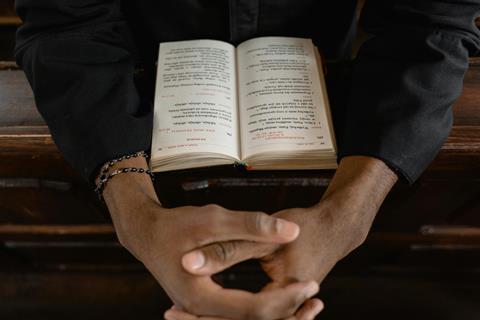We can do better than binary, divisive discussions, says Bishop Joseph D’Souza. Christians in the majority world have long understood that the gospel is good news for mind, body and soul. It’s time Christians in the West woke up to that

There is a century-old debate in the West about the issue of evangelism versus social action. There have been disagreements that have led to compromises that have led to further disagreements. Even today, many think of these two ideas — social action and evangelism — as irreconcilable. Yet I am disheartened that we are still debating this issue.
I believe that the story of Christmas poses an answer to this age-old argument. In the incarnation of the Lord Jesus Christ, we find the seemingly impossible - fully God, fully man - reconciled into a beautiful unity. I’d suggest that something similar is possible here. In fact, it is already being lived out in the majority world and it’s time the wider Christian community observed this reconciliation.
A different perspective
Evangelical Christians in the majority of the world, who are not financially dependent on the West, have already developed their own biblical construct of what the gospel means for humanity. They are hard at work freeing themselves from the neo-platonic construct of seeing humans merely as souls, and rather as whole persons whom Christ came to redeem - body and soul - through his death and resurrection.
The Pharisees had extensive religious knowledge, but failed to see Jesus for who he really was
In the decades since the inception of the Lausanne movement, I had hoped that global evangelical Christians would have recognised that Christians in the majority world are already addressing these questions in their own cultural context - the very same questions the rest of the world is asking now.
The complete work of salvation and ministry to the whole person are the priority of focus for majority world Christians. The debates about Calvinism and Arminianism, how best to conduct worship services, when should baptism occur – and other touchy subjects that occcupy the Western Church - are non-issues.
The justice of God
Conversely, the gospel’s impact on earthly justice is a significant issue in the non-Western world. Central to this issue is a more robust understanding of what the Bible means when it says Jesus is the righteousness, or justice of God.
This helps us to see the justice of God, not only in the forensic sense regarding how Jesus paid the price for our sins, but also in the holistic sense where he would not allow humans to be enslaved forever to the Devil and the power of darkness. It is this God who intervenes in human history to free us from all forms of enslavement.
In the kingdom of God, how does the Spirit of God work in the billions throughout the majority world who have never had the chance to authentically know and understand the true person of Jesus Christ? This is an especially timely question to answer at Christmas, as many will wonder who Jesus is, and how can he lift the darkness in their life here and now.
Additionally, how does the kingdom of God restore the plight of the hundreds of millions of abused, discriminated and enslaved children and women, both in the world and inside the Church?
The whole truth
We cannot divorce the theoretical side of faith from the practical. In fact, we look to Jesus Christ as the perfect example of this unity. When Jesus was asked what truth was (John 18:38), he presented an unorthodox answer that introduced another dimension to the concept of truth. His answer was that he - the unique person as the Son of God - was the truth.
That is why both theory and practice are essential to the Christian life. Dogma alone is insufficient if it does not point to and explore the person of Jesus Christ. We see this clearly in the lives of the Pharisees, who had extensive religious knowledge, but failed to see Jesus for who he really was.
We cannot divorce the theoretical side of faith from the practical
Christians around the world have much to learn from their Asian and African brothers and sisters. Many cultures across the globe use non-linear logic, which helps them understand how the incarnated Son of God is the truth and that to understand the Bible they need to constantly go to him. Only through Jesus Christ can we hope to understand the complex and beautiful truths found in scripture.
The habit in the West to debate theologically vexing topics, posing either/or questions, is not the way forward in the majority Christian world. Instead, through a renewed focus on the person and work of Jesus, it is time to focus on the tangible concerns of the people in our neighborhoods. As Christians, we must all engage in the more pressing topics of pain, sorrow, community and identity with Jesus.





































No comments yet